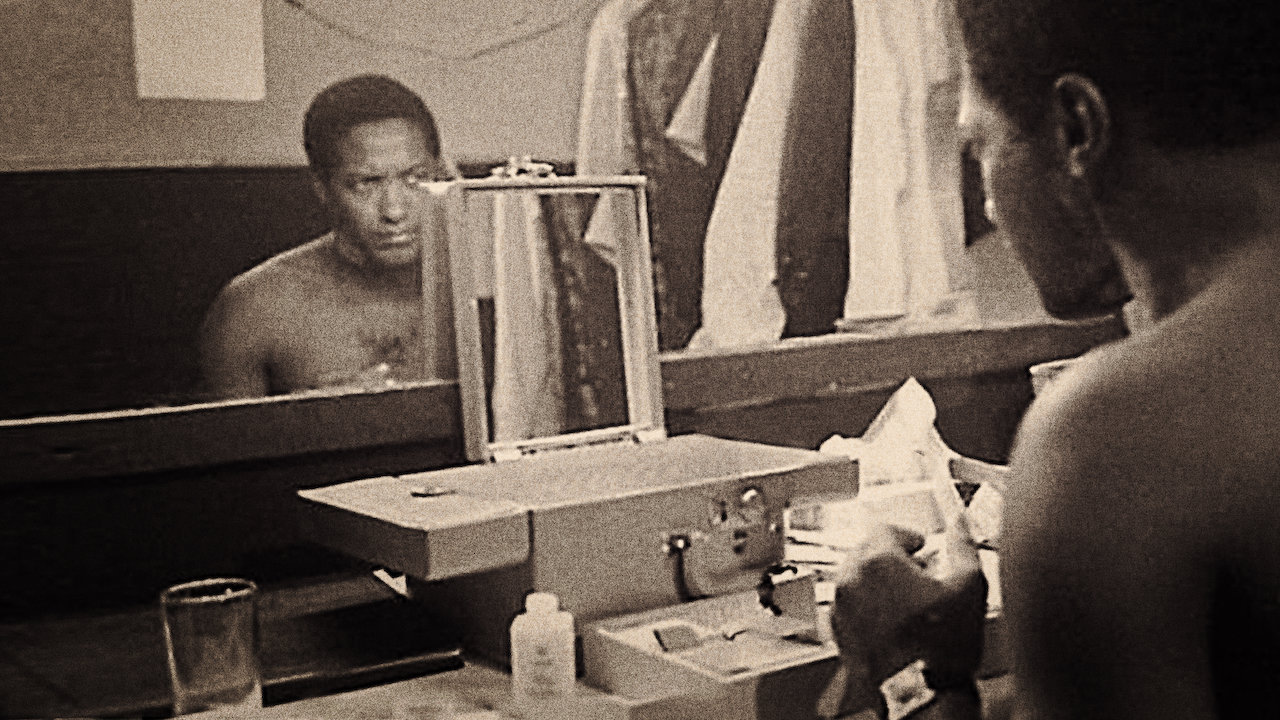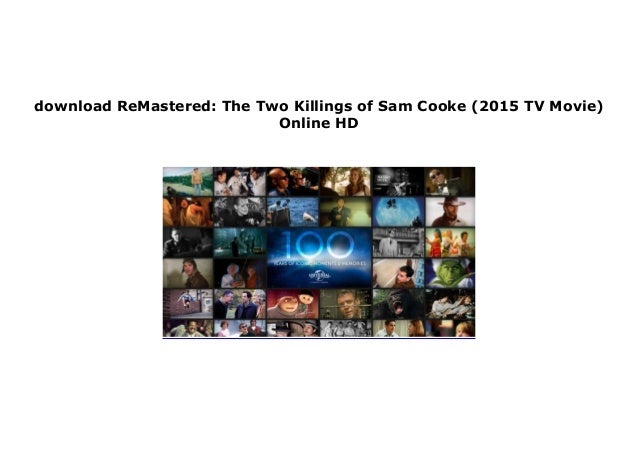Legendary singer Sam Cooke died in 1964 under circumstances shrouded in mystery. 'The Two Killings of Sam Cooke' gives us a look at his life, who he was, what he stood for, and the unanswered questions surrounding his untimely death. Sam was a passionate, loving, gifted, revolutionary, and complicated man.
Sam Cooke is often referred to as the father of soul music, as explained by Biography. He started by singing gospel music as a child — other singers, like Aretha Franklin and Patti LaBelle, got their first taste of musical performance the same way. He was born in Mississippi but grew up in Chicago, and in his teens formed a vocal quintet. Shortly after graduating from high school he joined The Soul Stirrers, a gospel music group, where he stayed for six years, sharpening his gifts. The year 1957 saw his first hit recording, 'You Send Me,' which knocked Elvis's 'Jailhouse Rock' out of the Number One spot on the charts. Besides singing and songwriting, Cooke had the foresight to control the rights to his music — uncommon in those days — and founding his own record label, signing such artists as Billy Preston. More hits followed, in a variety of styles, all showcasing his remarkably pure voice and unique stylistic touches.
Captain Cooke
- The Two Killings of Sam Cooke is a programme of multiples, a film which plays with doubles, divergences, and different narrative strands.
- ReMastered: The Two Killings of Sam Cooke 2019 TV-MA 1h 14m True Crime Documentaries While Sam Cooke rose to stardom as a soul singer, his outspoken views on civil rights drew attention that may have contributed to his death at age 33.
- ReMastered: The Two Killings of Sam Cooke. 2019 MA 15+ 1h 14m True Crime Documentaries. While Sam Cooke rose to stardom as a soul singer, his outspoken views on civil rights drew attention that may have contributed to his death at age 33. Starring: Sam Cooke.
Cooke gave us such standards as 'Another Saturday Night,' 'Wonderful World,' and 'Twistin' the Night Away.' And then in the space of a single evening, it all went south with a series of events that are questioned to this day. As told by Performing Songwriter, in the later hours of December 10, 1964, Cooke was out for a few drinks in Los Angeles when he met Elisa Boyer. They ended up at a motel; one theory suggests that she was a sex worker Cooke had hired. An altercation broke out between them, with Boyer claiming Cooke tried to rape her before she escaped. Cooke went to the motel's office, breaking down the closed door, where he had an argument with Bertha Franklin, the manager. The manager claimed self-defense when she shot and killed Cooke. A jury ruled justifiable homicide. For her part, Boyer would be convicted in 1979 of second degree murder in the death of a boyfriend.
It’s just a chair. Sitting, silently in the front room.
A legacy passed on to me from Harold through Vera’s people at Community Book Store, where it was deposited in storage until I got around to picking it up.
Harold Battiste. Born October 28, 1931. Died June 19, 2015. After producing a handful of regional hits, Harold left New Orleans and landed on the west coast and eventually became the musical director for Sonny and Cher, including their onstage appearances and their nationally televised program. Harold was also the producer of early releases by Lee Dorsey and Dr. John. I knew of Harold because of “New Orleans Heritage – Jazz: 1956-1966,” a 1976, 3-Lp box set of New Orleans music he had produced.
On one of his visits to his home town, Harold and I hooked up for dinner. That meal initiated a thirty-plus-year relationship, which intensified shortly thereafter when Harold returned home for good. In a local publication, Offbeat Magazine, I wrote about our friendship. The essay contained the line “Buddha and son,” referring to Harold and me.
My elder son Mtume and I were visiting Harold one day and the topic of Sam Cooke came up. I already knew that Harold and Sam had been close. Had already heard the story of how Harold helped Sam by anonymously arranging Sam’s first major R&B hit, “You Send Me”—subtly suggesting Sam didn’t need to repeat ‘you send me’ over and over. Perhaps use ‘you thrill me’ for one verse, and some other words.
That 1957 session had been almost a throwaway that Harold did as a favor for legendary producer Robert “Bumps” Blackwell. Harold was uncredited for that work. He said back then ghost arranging was no big thing. The record companies, the A&R people, and the musicians didn’t give it a second thought. Harold got the gig because he could arrange for voices. Bumps had hired a choir but at the end of the planned portion of the session there was no music for the choir to sing on this new song that Sam had. And, well they had some spare studio time, why not give it a shot.
Harold had told me many other stories. Indeed, I was a close reader helping Harold finalize his 2010 book, “Unfinished Blues…Memories of a New Orleans Music Man”. We worked on a follow-up book. That manuscript was completed but never published.
Although Harold was full of surprises and observations, he was unusually reticent and self-deprecating. On one occasion, I told Harold how much I admired Sam Cooke’s signature song, “A Change Is Going To Come.” In an off-handed manner, Harold informed me he played piano on that track. I knew Harold tickled the ivories but, even though there was a piano in the front room of Harold’s apartment, I mainly heard Harold blowing dulcet tones on his alto saxophone, which invariably was Harold’s instrument of choice when he played in the New Orleans nightclubs.

Harold’s relationship with Sam Cooke was as a musical collaborator and close friend. I knew of Sam Cooke because of his recordings, and later because of the videos on YouTube. When I saw the Netflix special that focused on Sam as a serious artist, I recalled that Harold had wondered why Sam, of velvet voice and matinee-idol handsomeness, had a penchant for some off-kilter tastes in people and situations. I, of course, had no response nor any conjectures about Sam’s idiosyncrasies, nor about Sam’s untimely and grisly murder. I simply believed that everybody has a skeleton in their personal closet, a side of themselves that is seldom revealed. The more popular one becomes, the more difficult it is to contain or restrain non-conventional behaviors.
Typically, when going by Harold, I would sit in the well-worn, red leather chair next to Harold’s desk but this time because I had my son with me, I motioned with my head for Mtume to sit. A little later while we were talking for over an hour dissecting, opining and shouting out our favorite Sam Cooke memories, Mtume said something about Sam Cooke’s perceptiveness. Harold in his soft voice, quietly dropped a bomb on the young man. “You’re sitting in Sam’s chair.”
Later, Mtume told me he had nearly jumped out of the chair when Harold said that. So many memories, so much meaning was literally beneath Mtume’s butt.

The Two Killings Of Sam Cooke Trailer
Sometimes a chair is not just a chair.
Two Killings Of Sam Cooke Dvd
–Kalamu ya Salaam
24 February 2019